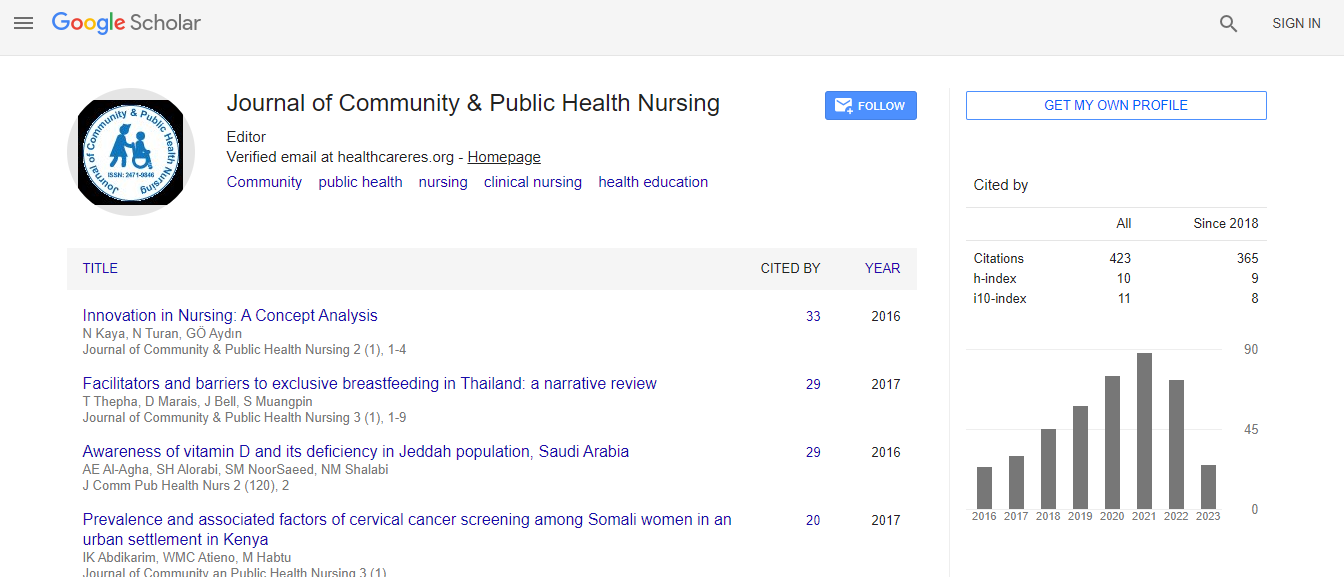Research Article
Household Food Insecurity and Health among African American Women in Black Belt Counties of Alabama: Evidence from Mixed-Methods Research
Andrew A Zekeri1*, Cordelia C Nnedu2, Sola Popoola2and Youssouf Diabate3
1Department of Psychology and Sociology, College of Arts and Sciences, Tuskegee University, USA
2School of Nursing and Allied Health, Tuskegee University, Tuskegee, USA
3Department of Environment and Nutrition Sciences, College of Agriculture, Tuskegee University, USA
- *Corresponding Author:
- Andrew A Zekeri, Ph.D
Professor, Department of Psychology and Sociology
Tuskegee University, USA
Tel: 334-728086
E-mail: zekeri@mytu.tuskegee.edu
Received date: September 26, 2016; Accepted date: October 12, 2016; Published date: October 19, 2016
Citation: Zekeri AA, Nnedu CC, Popoola S, Diabate Y (2016) Household Food Insecurity and Health among African American Women in Black Belt Counties of Alabama: Evidence from Mixed-Methods Research. J Comm Pub Health Nurs 2:138. doi:10.4172/2471-9846.1000138
Copyright: © 2016 Zekeri AA, et al. This is an open-access article distributed under the terms of the Creative Commons Attribution License, which permits unrestricted use, distribution, and reproduction in any medium, provided the original author and source are credited.
Abstract
Background: African Americans are more vulnerable to food insecurity than the American population overall. In Alabama’s Black Belt, food insecurity is more than three times the national average level. Yet, little is known about the association between food insecurity and health among African American women in the region. The purpose of this study is to assess the relationship between food insecurity and health among African American low income mothers in Alabama’s Black Belt.
Method: We conducted qualitative and quantitative research among 220 low-income African American mothers in a five-county area of Alabama’s Black Belt region that included Bullock, Dallas, Lowndes, Macon and Wilcox counties. Household food insecurity was measured with the United States Department of Agriculture Household Food Security Survey Module. Bivariate and multiple regression analysis were used to estimate the association between household food insecurity and health status.
Results: Over 51% of the mothers and their children live in food insecure households. We present qualitative and quantitative evidence that food insecurity is significantly associated with self-rated health. The mothers living in food insecure household are more likely to report poor general health. Nearly one-fifth of the women interviewed complained of health problems, including high blood pressure, back pain, depression and asthma.
Conclusion: The association of food insecurity with health, regardless of causal direction, shows the precarious situations poor single mothers in rural areas face. Reducing food insecurity among these mothers may improve their health status. The future direction of food insecurity research must go beyond just monitoring food insecurity to linking it with medical related out outcomes including health status.

 Spanish
Spanish  Chinese
Chinese  Russian
Russian  German
German  French
French  Japanese
Japanese  Portuguese
Portuguese  Hindi
Hindi 
